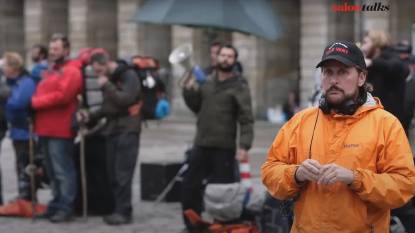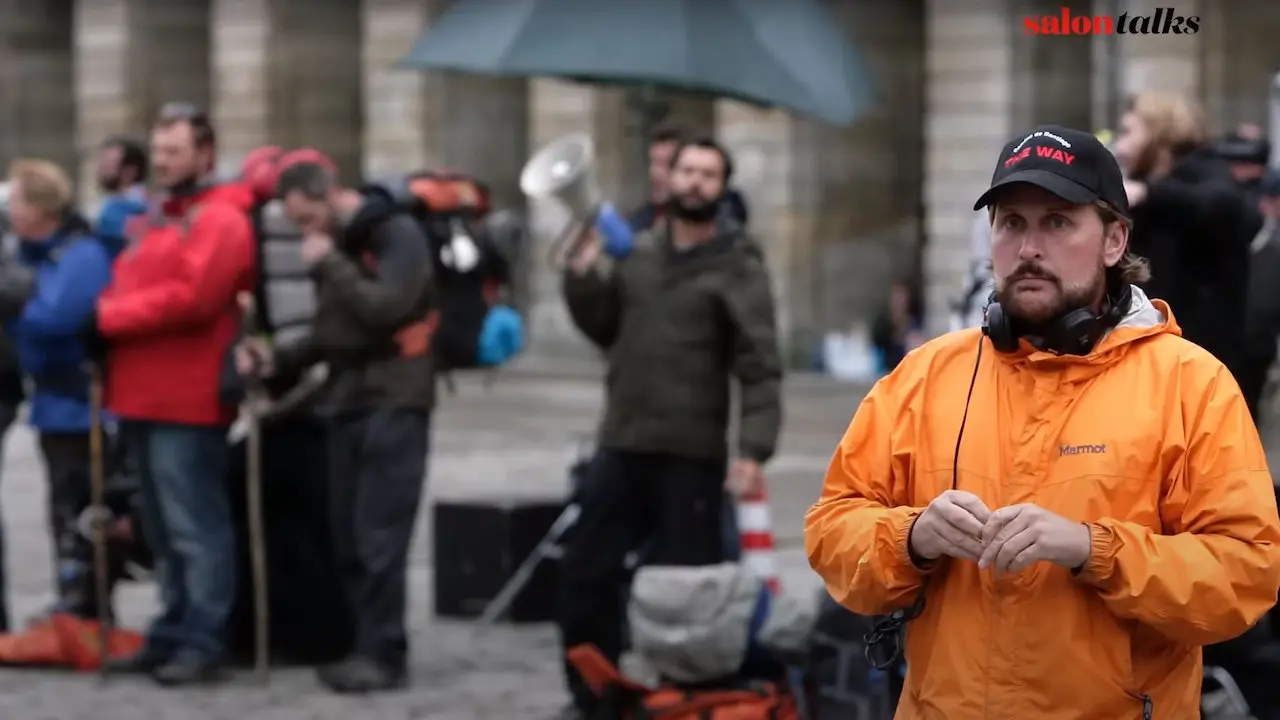
Emilio Estevez Interview: The Way Movie it's Relevance in a Post-Pandemic World
Posted: | Updated:
Reading time: 24 minutes
Emilio Estevez Interview: The Way Movie it's Relevance in a Post-Pandemic World
Posted: | Updated:
Reading time: 24 minutes
By: Simon Kemp, Editor
Emilio Estevez, the acclaimed actor, director, and writer, recently appeared on “Salon Talks” to discuss the re-release of his 2011 film “The Way.” The film, which Estevez wrote, directed, and starred in alongside his father, Martin Sheen, is set to return to the big screen, a decade after its initial release.
“The Way” tells the poignant story of a father who decides to complete the Camino de Santiago , a sacred pilgrimage route through Spain, after his son tragically dies while hiking it. The father embarks on an introspective and emotional journey, learning about himself along the way.
Estevez expressed his excitement about being back in the studio for the first time since 2020 and his anticipation for the film’s re-release. He believes that “The Way” is more relevant now than ever, especially in a post-pandemic world. The film’s themes of self-discovery and community resonate with the current global sentiment, as many people are re-evaluating their priorities and seeking deeper connections with others.
The film’s initial release in 2011 garnered a cult following, but due to financial constraints, it couldn’t maintain a long run in theaters. The film fell into bankruptcy and was rescued by Estevez, who managed to regain the rights to it.
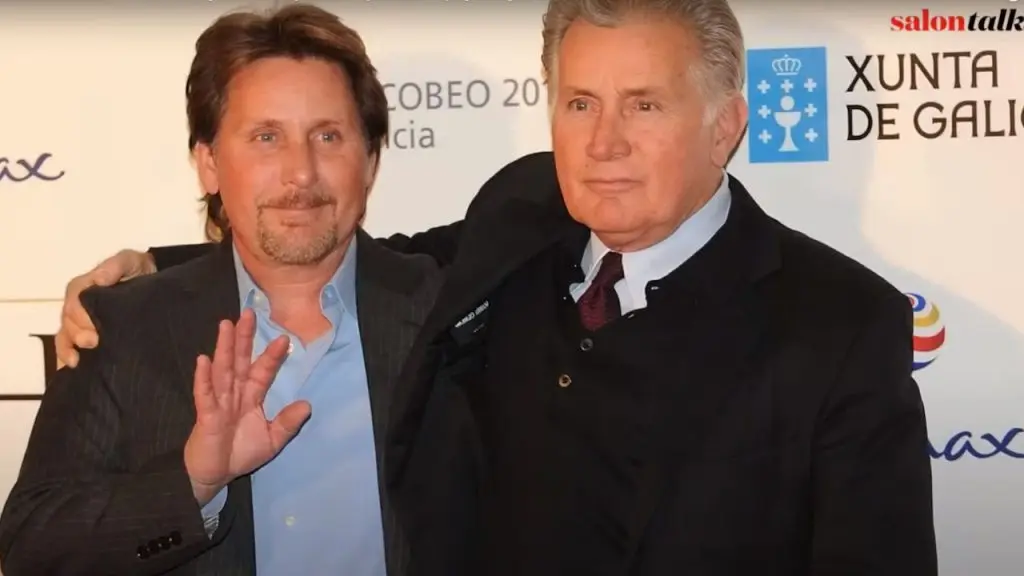
Estevez’s personal connection to the Camino de Santiago adds another layer of authenticity to the film. His grandfather was born in Vigo, Spain, which is about 50 miles from Santiago de Compostela. Furthermore, Estevez’s son fell in love and moved to Spain after a trip to the Camino de Santiago with Martin Sheen. These personal experiences deeply influenced the narrative of “The Way.”
The film was shot using Super 16 and all natural light, a decision Estevez believes adds to its authenticity and immersive quality. The quietness and introspection in the film reflect the transformative journey of the characters, providing a stark contrast to the fast-paced, technology-driven world we live in.
Estevez also revealed plans for a sequel to “The Way.” In the sequel, the main character, Tom, becomes a citizen of the world and works with Doctors Without Borders in Nigeria. After receiving a book with horrifying revelations, Tom leaves the village to find the author, setting the stage for the next journey.
The re-release of “The Way” is a one-day event on May 16th through Fathom events, followed by a month-long streaming period. Afterward, it will be available on platforms like Amazon and Apple. Estevez’s hope is that the film will continue to inspire and resonate with audiences, just as it did a decade ago.
“The Way” was slated for a one-day theatrical re-release on May 16, 2023.
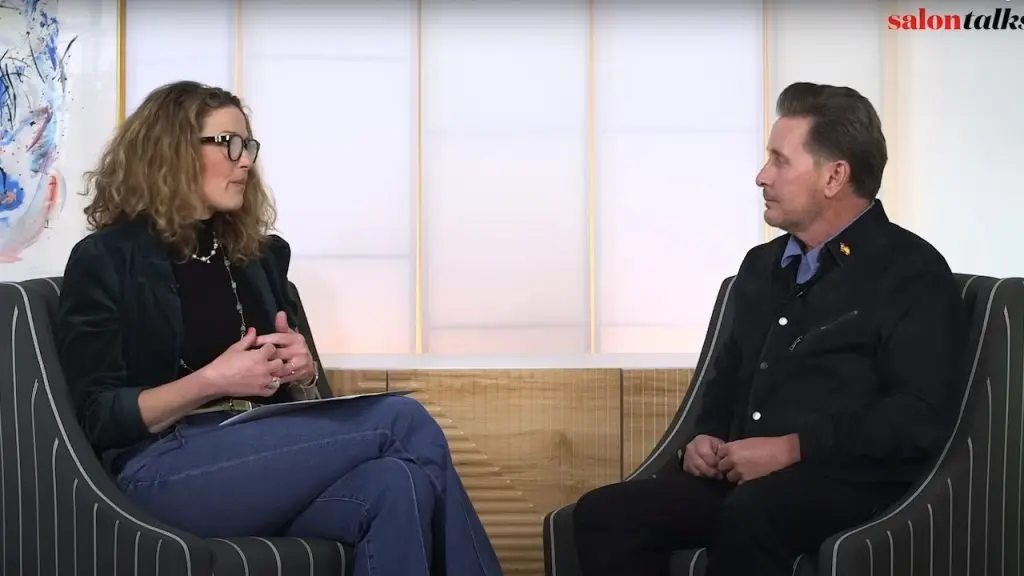
The Interview
Ali: Welcome to “Salon Talks.” I’m Ali Joseph and I’m super excited and a little nervous because this is my first day back in the studio since 2020. It’s true. It’s not crazy. Obviously, you know who this is? This is Emilio Estevez. I’m well, informal today, but it’s been going well. And I’m so excited to be here with you. I’m shocked. You’re back. I’m back at my attic, not in the closet. That would be different. And I would tell you, if I may, I mean, I was already honored to be here, but now it’s it goes up and naturally. Right? Here we go. Yes. First time back. Glad to be out of my attic. So you’re here to talk about the re-release of your film “The Way.”
Emilio: Yes.
Ali: Which came out in 2011.
Emilio: That’s right. Yeah.
Ali: And in which you star with your dad, Martin Sheen.
Emilio: I was small part.
Ali: You have a small part?
Emilio: Well, I recur.
Ali: We do see a lot of you. A couple of flashbacks. A couple of.
Emilio: Yes. But yes, he is the star. Yes. And I simply serve him as the director.
Ali: Yes. And you and you wrote and directed this film “The Way” and it’s in a limited release, correct?
Emilio: That’s right.
Ali: Theater?
Emilio: That’s right. Yes. May 16th. We’re out through Fathom events.
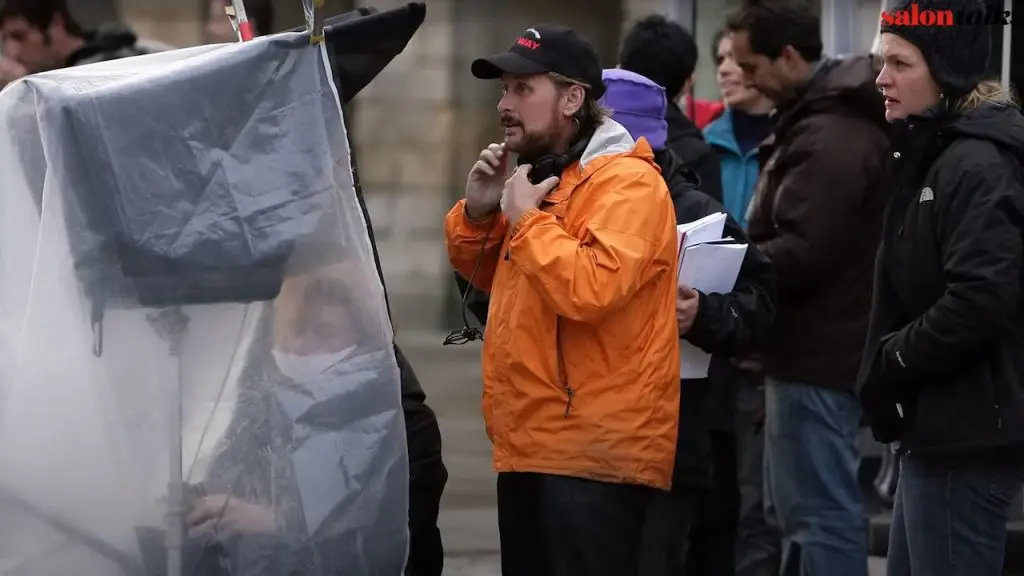
Ali: Okay. Wonderful. So if you haven’t seen the film, it’s 100% worth seeing. It’s beautiful. We’re going to get into it. There’s some some interesting things about how it was made, I think, and I find interesting. And the film tells the tale of a dad whose son has tragically died while walking on hiking the famous Spanish Camino. And that is the Camino de Santiago. And it’s this sort of sacred pilgrimage routes of through Spain.
And it has great significance, often religious for many people, especially Catholics. And so in the film, dad decides to complete the route that his son was unable to finish and has a very introspective and emotional journey learning as well about himself. So and also with a bit of dry humor that you only get from a machine or an asterisk right next to Sheen. Welcome back. It’s good to see you.
Emilio: And it’s good to see you, too.
Ali: You were last here in 2019. We were talking about that a little bit before for your film, “The Public.”
Emilio: That’s right.
Ali: About the library system in America. How did you decide or why? To re-release “The Way.”
Emilio: So the film had been languishing in Nowheresville for a while. When it came out, it had a sort of a cult following. We were out on about 300 screens total. We had done a national tour on a bus. I loaded my dad and my son and a couple of other folks onto a bus. We shrink wrap the poster around this bus. We went to 35 cities over 50 days. We slept on the bus. We ate on the bus. And and we drove around and we screened the movie twice a night and did cuny’s after every screening one secular one non.
And the feedback was amazing, but we didn’t really have the money. We didn’t have the sort of the backing that we needed the support to get it out there and keep it out there. And the film did well for the limited release that it had, but then it kind of it fell into well, it fell and the company fell into bankruptcy. And then the movie found itself in a motion to abandoned rights court in Delaware.
And I got a call from a small independent distribution company who said, hey, you know, your movie’s sitting in this courtroom. Do you need help rescuing it? And I said, Sure. So I set about trying to get the rights back to it. I did. And that was that was a couple of years ago. So here we are. And and that was during COVID. So now the movie sort of feels coming out of the pandemic, it feels like it’s more relevant now with this audience. Where were the planet is now then when we originally released it,
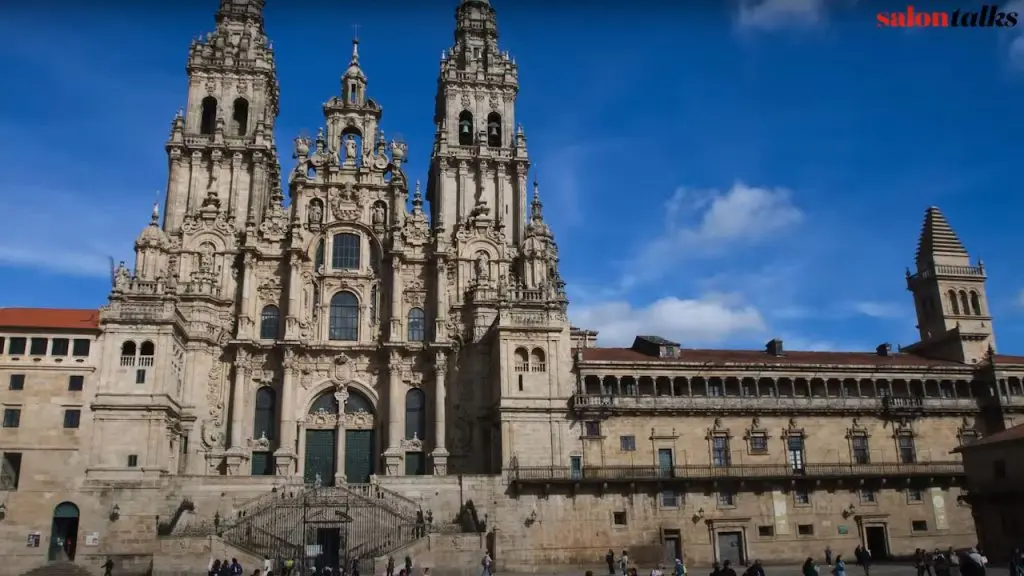
Ali: and why do you say that?
Emilio: I think we’re all having to hit the reset button. I think we’re having to sort of figure out what’s important, what isn’t. I think we’ve been sort of living within our tribes, and I think we’ve been we were self isolating before the mandatory isolation. And so now it’s like we’re having to sort of look at each other as we’re we depend on each other in ways that I think that we had forgotten.
And I think with this film, it’s about finding community. It’s about finding yourself. But it is really about not being able to find yourself if you don’t have community. And Martin’s character discovers that during the course of the film, he, you know, he he he’s doing, as you mentioned, he’s doing the Camino to honor his son, but he finds himself in the process. He doesn’t want these other pilgrims to go along and travel with him, but they do. And he finds community and and through that, ultimately finds himself.
Ali: And just as a point of reference in the earlier part of the film, and I won’t give away too much but your dad is successful. Ophthalmologist and he has friends, right? He’s got golf country club. But like in a sense, he’s still very isolated because in the film, you and your dad, he and his son do not have a close relationship for reasons that they don’t tell you off the bat. And so I think I did read that in pandemic, even not like now with it coming out again. There were a lot of people who found something in this film. So even in 2020.
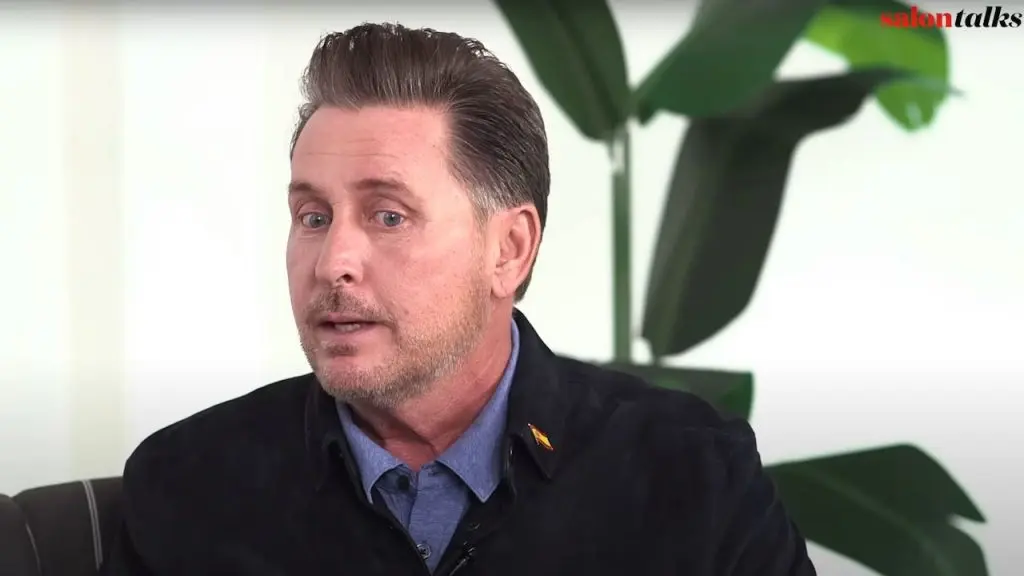
Emilio: That’s right. And you had heard about that versus now it will be relevant in the ways that you say. That’s absolutely right. And the feedback that we were giving when people started going back out again, they we would get emails, we would get posts on social. My dad, my dad’s not on the computer, so he’s all snail mail. And he he would call me. I just got this amazing letter week after week after week.
The basically the underlying sentiment was, Thank you for making this movie. It changed my life. Wow. And so I may never I mean, I’ll make more movies. I know that. But I may never make a film like this that actually has that kind of an impact. And so many people that got up out of their chair got up off their couch and said, I’m going to do that.
Ali: That’s amazing. Do you have any sense of how many people have re either?
Emilio: Well, obviously you don’t have tens of thousands reached have reached out to us. I’m going to say those are the ones that actually did reach out to see They’ve gone and done. They’ve done, you know.
Ali: Yeah. All right. So let’s back up. This is amazing, first of all, because it’s hard enough to get people out of their chair for anything, even a good cause or even go to the movies, for that matter. Right. You have movies, right? Unless you got Nicole Kidman alone in an empty and alone for AMC for two years, she was trapped in there. That’s that was not my joke. I just took it. But let’s go back seriously and talk about the Camino for people who don’t know about this pilgrimage. Can you describe so what it is and why it’s significant?
Emilio: So it is it started out as a predominantly Christian pilgrimage. The remains of Saint James, the apostle of Christ, are said to be interred in the cathedral at and in Santiago de Compostela, which is in the north of Spain. And as the crow flies, you of Madrid, above that you have Burgos. And then it’s a straight line to Galicia, to the to the to to the. She really is where where Santiago de Compostela is.
And so pilgrims have been doing this journey for a thousand years. And popes and saints and kings and queens. And basically, you when you walk the Camino, you’re walking with all of those spirits. You are inspired not just by your own journey, but you’re inspired by those who came before you and you did this walk. And it’s impossible to not walk in that history when you’re on this ancient trail. And so people have been doing this, like I said, for for a thousand years.
And it has morphed into something a little touristy. People go out now to find adventure or to find a partner or to find something. They’re looking for something. It’s not always a spiritual journey. But one thing is certain. However, you start your Camino in session before you do not finish it for the same reasons, nor do you finish at the same person. We will watch pilgrims arrive in Santiago de Compostela and drop to their knees and just weeping, not just because they completed it, but because they discovered something about themselves over those 40 days or longer that it took to get there.
Ali: And it’s. Is it 68? How far is it?
Emilio: 500 miles.
Ali: You can keep going.
Emilio: So. Right. So Martin’s character in the film, what he does is not spoiler alert. My character dies on his first day out on the Camino. He’s a world traveler. He sort of took the. He left Berkeley. He left the world of academia. And he wanted to follow sort of the Margaret Mead style cultural anthropology effort. And he’s traveled the world, but he gets out on the trail in Santiago to Santiago and he dies first day. I think it’s quite a storm. He’s ambitious. He’s a little arrogant, and he dies. Martin’s character goes to collect his remains Instead of bringing the remains home, has him cremated and does the Camino. So? So, yeah, it’s it is a transformational, obviously very transformational for my character, but certainly certainly for his. Remember, I mentioned the right humor. Yeah, it is. That was very, very touching. I didn’t get like I got to that my grave marker with the end. He’s covertly with the ashes. And I was just like, well, I do the make up. Yeah, it’s it’s.
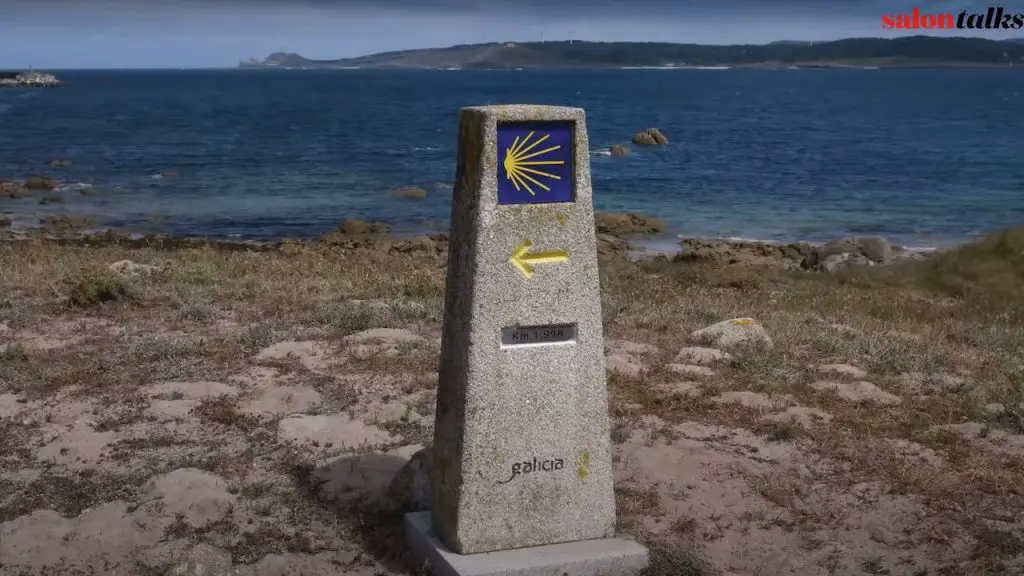
Ali: That’s rough. So what is your family’s personal connection to the Camino, and why was it so?
Emilio: For a couple of reasons. First, my grandfather is Francis Stone. This is who I. I dedicate the movie to at the end. Francisco never saw his name on the screen. He never saw my father’s name on the screen because my father had changed his name to Martin Sheen in 1958, when Francisco came finally to sea to New York to see my father on stage. And the subject is roses. In 67, he looked up the marquee and there it was, Martin Sheen. He went, and my dad saw that. I thought, Oh my God, what have I done? I’ve shamed my father. Anyway, so he so when it was when I started acting and when I started thinking about it as a profession, he said, Don’t change your name. Don’t make the same mistake I did.
So that’s a little backstory to why Spain and why the story where my grandfather was born is a little town called Vigo, which is about 50 miles from Santiago de Compostela. So my dad had always heard of the Camino and always wanted to do it, but never took the time. In the summer of 23, during the hiatus during “West Wing,” my son was working for him as a as an assistant is 19. At the time, my dad had planned a trip to Europe. He said, Look, we don’t have the time. We don’t have the six weeks to do the full Camino, so I’m going to go drive it. I’m just going to go check it out. My son goes along.
Then they’re traveling the Camino and they’re seeing the site and outside, and they stop in this town called Burgos for the night, which is it was like a catamaran where they take in pilgrims and they feed them and they house them water on their travel. And the Innkeeper’s daughter walks into the room. My son takes one under her, falls in love, and they have been together ever since they have a child now.
My granddaughter, who’s now who just turned four. But that was sort of the first miracle on the Camino that happened. So when my dad came home from the experience and my son came home briefly because he says, I’m going back to Spain to study university.
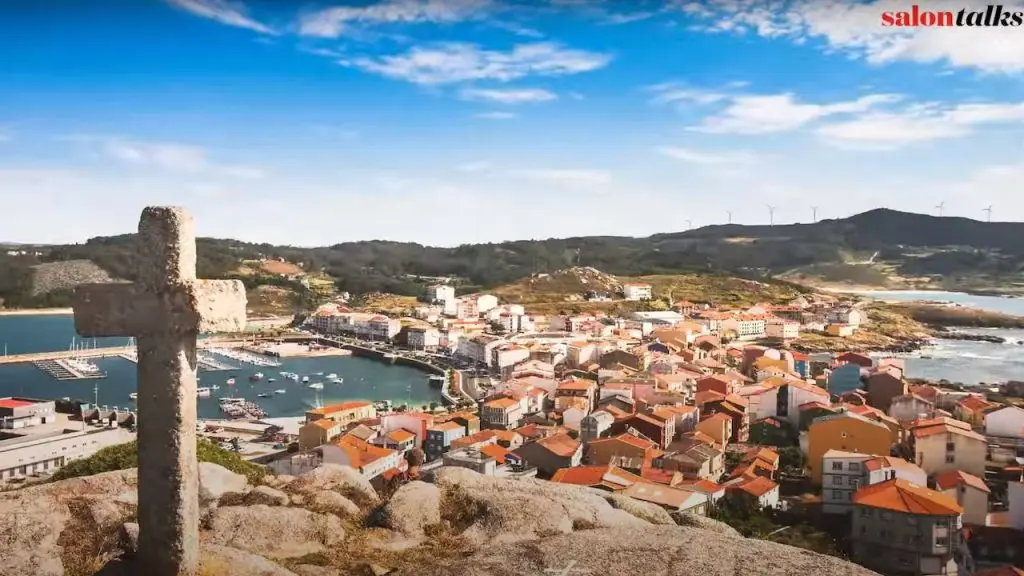
Ali: Right, right, right.
Emilio: He he my dad began to say, well, how about doing a film in Spain come about? You know, I started just sort of knocking around these scenarios and that. Yeah, well, let me figure this out. Let me let me speak. And then it occurred to me that I had when my son finally moved to Burgos. Well, I kind of lost a son on the Camino. Maybe that’s the maybe that’s what the story is about. Maybe it’s about a father who loses his son. And then essentially, I wrote my own obituary. You really are losing my son. I mean, he moved. Yeah. You lost him. I hope you didn’t, you know. No. Right. So he’s good. He’s good. He’s going to have a child. That’s all miracles. But that was your connection.
Ali: All right, So. So talk a little bit about when you talked a little bit about the the pilgrimages and how how important that and what resonance that has, especially in Europe for for Catholics and Christian Christians generally here, we’ve sort of dumbed down the human quest in America, at least I think so. You know, And yes, you’ve got your your wild folks, your hiker, backpackers or whatever. Vanlife people. Yeah, right, Right. Oh, yeah. Frances McDormand, Brilliant in that role Nomadland you know these a bit of a cry to yeah, that’s a different kind but it’s all most of it is very systemized. You’re right It’s like, well, I’m going to go and put on the back and do the thing. And it’s not for like spiritual awakening. So do you think we as Americans need to take a pilgrimage amidst our busy lives? And why and where would you go?
Emilio: I think it would change our politics. I think it would change our media. I think I think if people actually took the time to go and traveled to their interior and take the time to do that, I believe that there would be massive change. And the question is, when you go, can you keep it from being an instagrammable moment? Because that’s that seems what it’s all about now. It’s like, here I am, boom, You didn’t enjoy the journey. You did enjoy the moment. You had to take that photo for who? Who cares, right? Who cares? Really?
Ali: It’s so we’ve gone. We’ve gone so far away from doing things to improve ourselves. We’re now doing things to impress others to the point where we’re. We’ve just sort of lost the plot, in my opinion. And no, I told you, I have a teenage daughter, so I just have this argument all the time and I’m not going to be popular, but I would wish that Snapchat would just crash and burn and go somewhere else. Go away.
I know something like the Whack-A-Mole will pop up in its place, but it is this child is very real with with teenagers and their need to connect and feel that they have found a tribe, even if there’s a superficiality, because they they don’t yet have that perspective. But in any event. So how do we get there? I mean, I mean. But that’s the conversation, right?
Emilio: That’s the conversation. Well, I think that that’s a start.
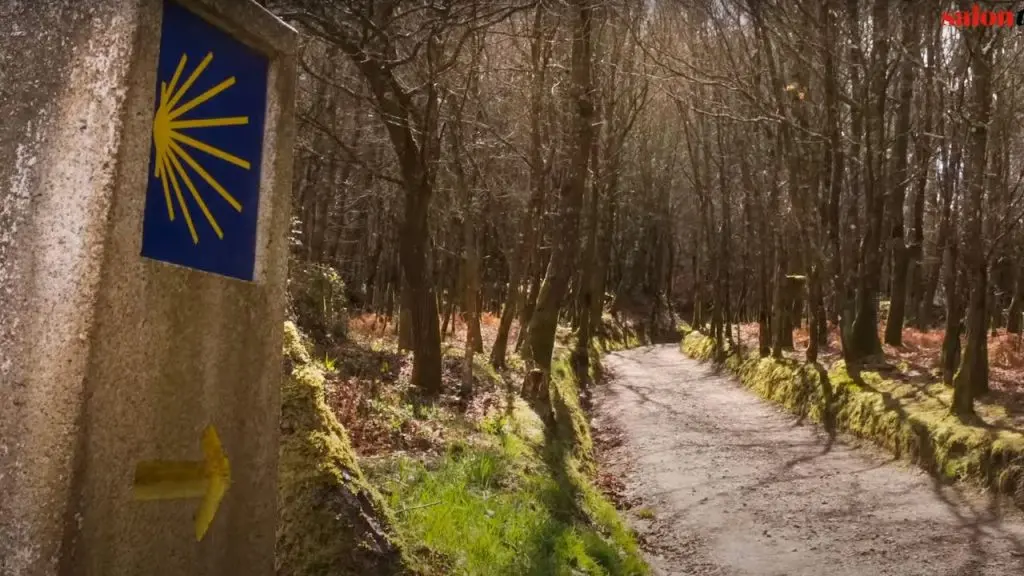
Ali: That’s a start. And when this film first came out, you talked about how movies usually create. And this is how I encapsulated what I think you said, sort of an overall dysmorphia for viewers based on this idea of human perfection.
Emilio: Right.
Ali: Like how how we have to look a certain way, eat a certain, you know, to eat to look a certain way, not to be healthy, but to, you know, photograph ourselves a certain way, filters and so on and so forth. Why is your film different? What does that message? That message is different.
Emilio: So you’ve talked to enough directors and producers and filmmakers and actors, and they will and I’m sure they will tell you the horror stories when they sit in a studios executives office and you’re talking about a specific plot or story. They want to talk about the character arc over a two hour or three hour room. That character has to change, and the character has to go from here. And okay, How many friends do you have that you’ve known for 20 years?
Ali: Many.
Emilio: How many of them really change over the course of that 20 years? I mean, really changed. How many them totally surprised you with their transformation where they’ve made a full character arc per the studio?
Ali: Oh, none. None. No. Looking for none of that’s good, right? Yeah. Okay. Or not.
Emilio: But yeah, but the movie is about how we are and should be okay with being exactly who we are. We know when at the end of the movie there’s not a spoiler alert. But the Dutchman says, You know, I needed a new suit anyway, and she was. You’ll see what you mean. Sarah The Canadian played by the lovely Deborah Kerr. UNGER She’s not stopping smoking. No intention of stopping smoking. She’s going to be exactly who she is no matter what.
So the Camino has transformed people. The journey has transformed them, but not in the ways that are obvious. So they may start out as being somewhat stereotypical characters. But the the endgame, the mean, it’s the end where they finally arrive is so far from being stereotypical because there is not the character arc that the studios all want to see. These people are exactly the same.
Ali: So you talked a little bit about in, you know, in some original interviews for the film, and I just wanted to touch on this how little tech was a theme, you know, was used 16, right?
Emilio: We shot Super 16. We know all natural light and I love this as a like, atavistic photographer. You know, I love a hard body camera I still shoot on tracks for if you’re not a photo nerd, you know, that is. But you know, I don’t like flash photography. I love the iPhone. So it’s for Apple because it’s easy, right?
Ali: But the photos are great. There’s something about that, like rich, grainy, and so I had read that already in an interview you did originally. But then I watched the film and I could hear myself think because it’s not just like shoved in dialog. As you mentioned, there’s a lot of it scored. Yes, but there’s a lot in my opinion. There’s a lot of quietness because the person because your dad and your dad in the film is on a journey and he has to reconcile his own thoughts and emotions. And it’s. Or was that some that’s something I assume that’s something you put some thought to.
Emilio: Oh, yeah. It’s about the steps you take. I loved it was quiet. Talk about a 12 step program. You know, this is a million step program to get to the self to get to your truth. And this was this was intentional. And you’ve seen the movie. It’s swimming in green, swimming in green, the whole movie. And it’s just like you can and the the DP is a Spanish DP Juan Spiros, who who moved from Spain to Brooklyn, met his wife, his now wife on the Camino. During the film. She was actually running footage Expos film to Madrid.
She was production assistant and running the film every night to Madrid and coming back to wherever we were on the Camino. They met, they fell in love. They had two children. They moved to Brooklyn. He comes to Cincinnati to to to scout locations for the public, decides I love Cincinnati. It’s much more affordable than New York. I’m moving my family to Cincinnati, he says to me. When Mrs. Miller says this, Every time I work with you, my life changes. And he’s another miracle on the Camino is a guy who’s now in his fifties and has this amazing life in Cincinnati.
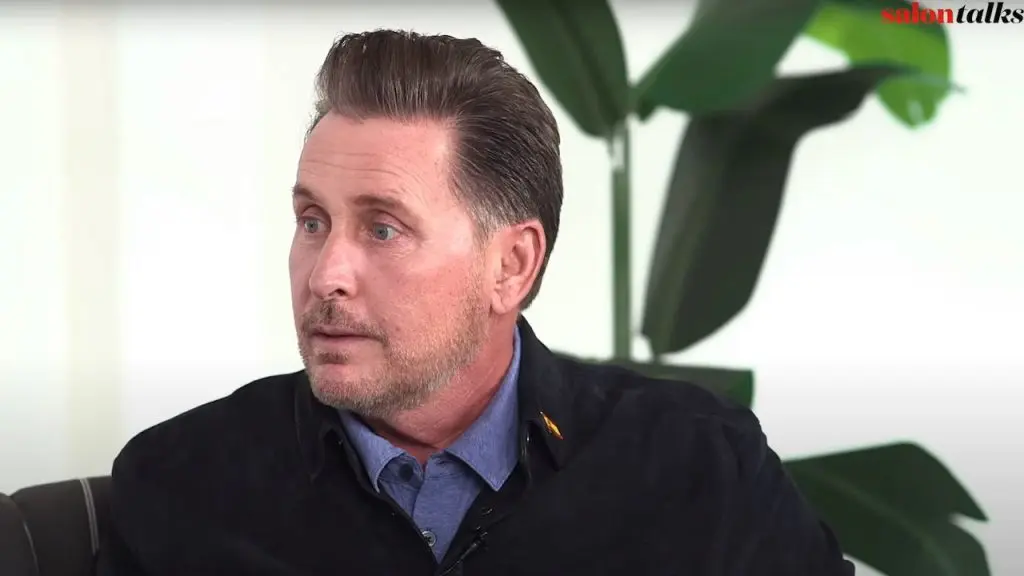
My first aid met the costume director or the costume costumer on the film. They married, have two children now in addition to my son and his wife. So there were all of these amazing miracles, all of these moments of genuine love that were born out of this film that you just it’s you just can’t ignore it.
Ali: The movie had a magical impact on so many people and continues, and now it will have a whole new audience.
Emilio: Indeed. And we’ve added this Rick Steves. I saw footage which is, you know, he’s a mad genius. My girlfriend Jackie, came up with this crazy idea. She said, Let’s call Rick, let’s email and let’s just reach out to her. I said, You know, I said, Well, surely he’ll respond to you. And I said, okay, email send. Let’s have another beer.
He calls the next night and he says, I’d love to be a part of it. Let’s keep talking. We got to I took my parents, we got on a train, took the Amtrak on our own pilgrimage to see Rick Steves, to Edmonds, to use one of us asleep on that. Oh, no, no, it’s impossible. It’s is tight. It’s very tight. It’s cozy. It is so amazing. We went to Edmonds, Washington, and we shot this added footage.
And I was kind of the I was the the the moderator. And I sat between Rick and Martin and ask them questions. And it was a great dialog about faith and about family, about pilgrimage and Rick’s mission, which is a why we travel and be the road, his church and and how pilgrimage is really the first church.
Well, you guys are scrappy. I’ll say that we’re that Hollywood stuff. No shrink wrap a bus and like, drive 50. What is it was a 50 It was 50 days 35 saying good lord sleeping on it as I’m sure. Nice bus. You know, it was okay. It was a good bus. It was a good tour bus, was a good debate. But that and now you’re going to Washington. You’re taking the Amtrak. Yeah. So never let it be said. The jeans are not and the rest of us are not method folks, man. It’s all method. We we talk the talk and walk the walk, you know?
Ali: All right, well, now we’re going to tell people to head out. And on May 16th, where how long will it be in theaters.
Emilio: So it is a it is a one day event one day. And get there on Tuesday, May 16th with Fathom events. But then there’ll be a month where they run it on a it’s like a streaming platform for one month. And then after the streaming platform will be back on all the, you know, all the usual suspects with Amazon and Apple and all of those.
Ali: All right.
Emilio: So you will be able to find this imminently and you haven’t been able to, by the way, which makes this whole experience unique. We took it down from Apple. We took it down from Amazon. We sort of stripped it away from from view, essentially to be able to do this rerelease and reboot.
Ali: I love it. It’s a beautiful film. It’s really lovely to hear how much it’s positively impacted people, but that is the way it is. Like what I did. Yeah, Yeah. All right. This is, of course, Emilio Estevez. He likes it. It’s just giggling over there. I missed the studio. Thank you for having me back. And welcome back for coming back. This is great. This is USA is, of course, and his film is being rereleased “The Way” which he wrote and directed and stars his dad, Martin Sheen.
Emilio: And I’ll be back to talk to you for the sequel. Oh, my God. A sequel headed off to Spain to start doing R&D. And for real?
Ali: Yeah. Oh, you’re serious?
Emilio: Yeah. Yeah, I thought that was. Oh, yeah. No, no, no. We we rediscover Tom. He’s. I’ll just go. I’ll give you a just a brief a spoiler. He, he’s big, he’s become fully evolved. He’s become the real citizen of the world. He’s now working with doctors Without Borders Médecins Sans Frontieres amazing organization. And he is in his year in Nigeria and he is performing cataract surgeries and in remote village. And a C-130 plane comes in with supplies for the village, surgery supplies and mail. And in the drop is the Irishman’s book. And in the book are some absolutely horrifying revelations. And Tom has to leave the village to go find him for the next journey.
Ali: Oh, my. I wasn’t expecting that at all. “The Way.” Chapter two. So off we go.
Emilio: And hopefully, yeah, we’ll get this thing up and running and I’ll be back. Please. Yes.
